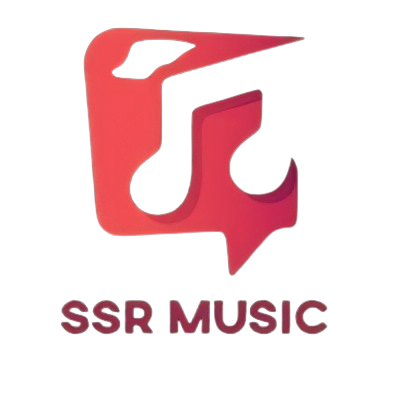
Table of Contents
How does music licensing work
The process of getting approval from the copyright holder to use a piece of music for a particular purpose is known as “music licensing.” Recognize the benefits of licensing music, the sorts of licenses available, the legal ramifications of licensing, and where to obtain licensed music.
Types of music licensing

What is Music Licensing?
Our lives are not complete without music. It has the capacity to arouse feelings, establish an atmosphere, and produce life-long memories. Using music into your work, whether you are a filmmaker, content developer, or company owner, may increase their impact and draw viewers in. To be sure you are using music in a proper and moral way, it is crucial to comprehend the legal ramifications of music licensing.
What is Music Licensing?
The process of getting approval from the copyright holder to use a piece of music for a particular purpose is known as “music licensing.” Depending on the rights in question, the recording artist, composer, or songwriter may be the copyright owner. You can legally utilize the music in your project and pay the copyright owner for their work by obtaining a license.
Types of Music Licenses
Depending on your unique requirements and the intended use of the music, a variety of music licenses are available. Here are some examples of typical license types:
- Sync License: With this kind of license, you can sync music with visual content including movies, TV shows, commercials, and internet videos. It is among the most widely utilized license kinds in the entertainment sector.
- Performance License: You’ll need a performance license if you want to play music in public places like restaurants, shops, or live events. The payment of composers and songwriters for the public performance of their works is guaranteed by this license.
- Mechanical License: If you wish to distribute and reproduce a copyrighted song in a physical or digital format, like CDs, vinyl albums, or digital downloads, you must obtain a mechanical license. Record labels, streaming services, and musicians that wish to cover songs by other people frequently get this permission.
- Master License: This is the permission to use a particular song recording. A master license from the owner of the recording is required, for instance, if a filmmaker want to incorporate a specific version of a song into their production.
- Print Music License: This is a print license for sheet music. This license is required if someone wishes to print and distribute sheet music for a song.
- Digital Performance Right for Sound Recordings: This pertains to sound recordings that are transmitted digitally, such as through streaming services. It guarantees payment to copyright holders and artists for digital performances of their music.
Benefits of Music License
Getting the right music licenses has a number of advantages.
- Legal Protection: Getting a license shields you from accusations of copyright infringement, which can lead to pricey court cases and reputational harm.
- Quality Assurance: Licensed music guarantees that you are working with professionally produced and mastered tracks, which raises the standard of your project as a whole.
- Supporting Artists: By paying musicians fairly and ethically for their artistic labor, music licensing enables musicians to keep creating and inspiring new music.
- Increased Audience Engagement: A well-selected musical selection can establish a more meaningful emotional bond with your audience, which will boost engagement and leave a lasting impact.
Where to Find Music for Licensing
There are several platforms and services available that offer a wide range of licensed music for different purposes. Some popular options include:
- Music licensing organizations: Organizations like ASCAP, BMI, and SESAC offer a huge repertoire of songs from many genres and can help you get the rights you need.
- Online music libraries: A variety of pre-cleared music is available for various project kinds on websites such as Artlist, AudioJungle, and Epidemic Sound.
- Direct Licensing: In certain circumstances, you might want to speak with independent composers or artists directly about licensing their works. This might give your project a special, tailored touch.
Conclusion
Managing music licensing is a crucial part of incorporating music into your work in an ethical and compliant manner. You may make sure that your projects are improved with the power of music while honoring the rights of the artists by knowing the many types of licenses that are available, the advantages of licensing, and where to find licensed music.
Thus, the next time you set out on a creative endeavor, don’t forget to investigate the realm of music licensing in order to find the ideal soundtrack for your idea.
Check out this blog related to this blog Tune core article
Check our featured blog
The Role of Music Distribution Companies
How Do Musicians Make Money?
How Do Musicians Make Money? Discover the most important revenue streams for musicians: live performances and tours, music sales and streaming, royalties and licensing, and merchandising and brand collaborations. Discover how various revenue streams influence a musician’s financial success and audience involvement in today’s music industry. Understand the value of strategic planning and personal branding…
The Elements of Music Theory: 7 Comprehensive Guide
What is the theory of the music? Music theory is the study of musical practices and possibilities. Its fundamental purpose is to provide a framework for understanding, composing, and evaluating musical works. Music theory allows artists and aficionados to understand the various structures and ideas that drive musical compositions ranging from classical symphonies to modern…
What are The 7 Musical Notes?
What are the 7 musical notes? Learn about the importance of musical notes and the concept of the C major scale. Explore how musical notes are the foundation of music theory and composition, and how they allow musicians to communicate and notate their ideas. Discover the relationship between different notes and how they create melodies…

Leave a Reply